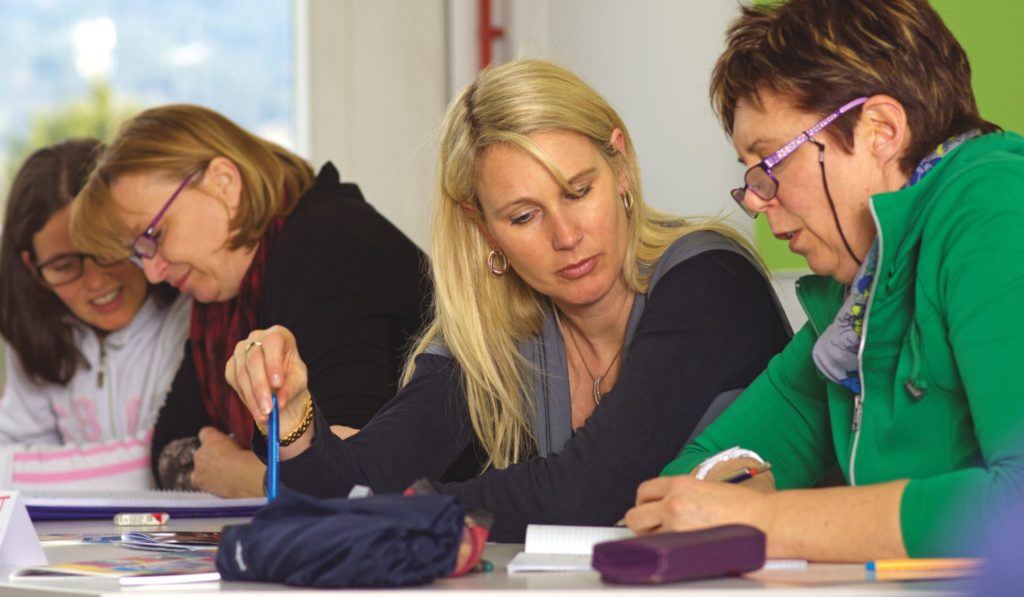The Centre de ressources Robert Laplane’s central concern is in helping medico-social establishments and services (établissements et services médico-sociaux, ESMS) to improve their overall consideration of the care-recipient’s conditions and circumstances, so as to respond to their needs with greater consistency and continuity.
Three main principles underlie our goal of increasing the skill sets of teams from ESMS-s.
- Basing care on the care-recipient and their circumstances
We place meeting and collectively observing the people on behalf of whom we have been consulted at the foundation of our training of care teams. Though current understandings in neuropsychology and neurophysiology have fuelled the development of our clinical assessment approach, we don’t carry out a neuropsychological assessment in the strict sense of the term. Our objective is to arrive at an overall, shared understanding of the person’s functional and communicational profile, taking their sensory, neurosensory, motor, neuro-motor, and cognitive aspects into account, as well as their situation as part of their family and environment.
- Encouraging an inquisitive approach
Putting professionals in a position of observation allows their questions to be surfaced and allows us to construct, together, a shared understanding of the care-recipient. To do this, our pedagogical methods invite the participants to place themselves, by turns, in either a position of observation or participation in exchanges taking place with the care-recipient. We also offer multidisciplinary workshops during which professionals are put in the position of having to communicate with other professionals, relying solely on the creation of situational drawings or the use of pictograms. They are thus put in the position of interrogating the very act of communication. Indeed, the multidisciplinary, team-based analysis of particularly complex situations not only allows each professional to question their practice, but also incites the team to cross-fertilise different observations in a way allowing the proposition and formulation hypotheses about the overall workings.
- Thinking of training as a process which unfolds over time
The contents of the training programme are built up over time, and according to the various needs at the time of asking. We develop the general outline of our interventions beforehand, within the framework of a regularly reassessed partnership agreement. Bit by bit, a distance has been established between our interventions and direct interventions on behalf of care-recipients.
Another kind of work being implemented with care teams is the analysis of case studies, film sequences, and theory presentations. Support for the care practice of middle-management staff is also offered. This is rarely suggested as a first recourse. As we can only intervene once or twice a year in the same establishment, we rely on points of contact, specialists in the actions to be carried out, to ensure their continuity. These resource people pass on their reflections to the team, and are also likely to become “relay people” in the possible transfer of skills within the establishment or towards other services in the region.
FIND OUT MORE
- Account from a medico-social establishment (the CROP Paul Bouvier, Nîmes): click here
